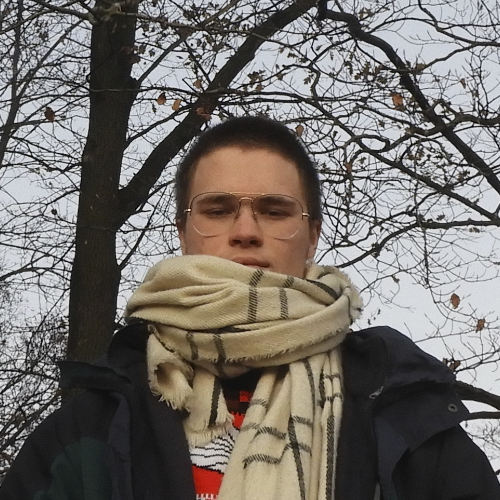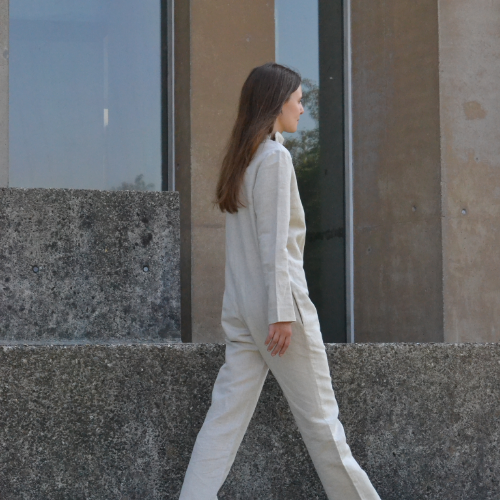
The book »Along the Walk, Written Traces of Artistic Walks« is out and living and walking and available for purchase!
To order the Book, send us a Mail to info@die-gorillas.de
The price of the book: 18 EUR
The book plus shipping within Europe: 20 EUR
The book plus shipping outside of Europe: 25 EUR
The book is also available in an electronic version here.
Download the Pdf-Version for free.

The Along the Walk project took place between 2022 and 2024 in different rural areas across Europe. Seven artistic duos, all with background in performing arts, carried out two 10-day artistic Walks each. The main goal of the project was the development and the exploration of artistic and production methods that are in line with the concepts of deceleration, environmental awareness, social inclusion and collective work.
The book is conceived as an art gallery housing a group exhibition « Written Traces of Artistic Walks ». Each of the seven artistic Walks is showcased with its own exhibition space. The material on display, drawn from the artists’ own experiences and artistic approaches, includes: diary entries, reflections, musings, a performance script, an interview, a literary product, lists and more. The written traces offer insights into the different aspects of artistic processes and strategies of processual art, both of which are the focus of the Along the Walk project. Each of the individual exhibitions is accompanied by a curatorial text by one of the writers, coming from the field of theory and critic of performing arts.
| Editor: | Samo Oleami |
| Assistant editors: | Maja Dekleva Lapajne and Metod Zupan |
|
Texts:
|
Beatrix Brunschko, Maja Dekleva Lapajne, Christelle Delbrouck, DISCOllective, Julie Doyelle, Giovanni Fusetti, Sean Gittins, Ramona Krönke, Matthieu Loos, Inbal Lori, Alenka Marinič, Marko Mayerl, Samo Oleami, Raschid Daniel Sidgi, Lenart Sušnik, Mathilde Vrignaud, Andrea Zabric, Metod Zupan |
| Proofreading: | Sunčan Stone |
| Translation of »The White Bun« fairytale into English: | Andrea Zabric |
| Graphic design and layout: | Neža Trobec |
| Along the Walk graphics: | Yannick Bailly |
| Illustrations: | Raschid Daniel Sidgi (Walk Like your Father; Walk Like your Mother), Andrea Zabric (Tell It One More Time, Tell It All Night Long; The White Bun), Neža Trobec (maps) |
| Producer: | Juš Milčinski |
| Co-funded by: | The Creative Europe programme of the European Union, The Ministry of Culture of the Republic of Slovenia, The Ministry of Public Administration of the Republic of Slovenia, Institut français, the city of Lyon and Grand Lyon. |
Published by DU Narobov
Ljubljana, Slovenia, April 2024
Samo Oleami writes :
« This Book is a documentation of methods and approaches developed within the project, that are based on the concepts of deceleration, environmental awareness, social inclusion and intercultural dialogue; a documentation of how these approaches were received, created and developed in participative artistic action in the European rural areas and what are the findings of this journey; a compendium of various multi-genre texts and documentations – in writing, drawing or photography – produced in the artistic process. Understanding the logic of the performative actions as open-ended processes in which enter – the history of performers, the path they’re taking, people they encounter and the history of the land itself, documentation of the project is likewise intertwining with artistic actions. Firstly, each of the artistic duos finds its own format of documenting their walks – for instance with written fairy tales, introspections of a pilgrim, or with transcribed interviews with passers by, drawings, photographs, impressions and so on. In the same way the artistic walks leave traces in the geography they traverse and in the people they meet and encounter, they also leave traces in writing, drawing, sound recording and photographs. The multi-genre compendium thus also represents the different artistic approaches of each walking duo and different circumstances they encounter.
Apart from textual and visual material produced by the artists themselves or collectively in the artistic process, the compendium also features contributions by outside writers, however they also need to be intertwined with artistic practice. One type of texts thus includes materials which artists have used in their preparations for the walks, and which would thus influence the dramaturgy of each project and thus leave traces in the multi-genre documentation as well. The second type of text is produced by invited writers who engage themselves with the performers and walk with them for a shorter period of 3 days. With such a format we wish to subvert the notion of an objective outside gaze which presents factual documentation as unproblematic – instead the material collected follows the traces of social spaces, interactions with locals and be intertwined with the artistic methods chosen. The durational nature of the projects also empowers the notion of experience – the passage of time, the behaviours being created through artistic practices and engagements with audience, the psychical experience as opposed to online presence – all of which we hope to capture in the multigenre format of the compendium from which a reader will not only gather information, but also experience holistically. Each artistic walk has its section including: the map of the walk, artistic methods and strategies, conceptual starting points, findings and feedback from the encounters with audiences, multi-genre documentation and contributions by visiting writers. »


SAMO OLEAMI
Samo Oleami is a critic and a dramaturge in the field of performing arts and covers a wide range of performative practices in his writing and thinking about theatre: contemporary dance, devised theatre, street theatre, improvised theatre, drama theatre, live art and intermedia. Having experience in different roles within a creative process enabled him to develop a broader, thorough insight into creative theatre practices. Through his studies, writing and art projects he developed in-depth knowledge on Slovene neo-avantgarde movements of the late 1960s and early 1970s in the crossover of performing and visual arts, as well as the global context of neo-avant-garde and the emergence of contemporary performing arts practices and strategies. He currently writes for Radio Student Ljubljana.

LENART SUŠNIK
Lenart Sušnik is a film editing student at the Academy for theatre, radio, film and television, writer for Radio Student (film and literary critiques), editor of the academies magazine – section for film, editor of the poetry book Bog si ga drka na nas. Had one alright film and is curentlly writing a half-decent poetry book set to release soon. He likes to touch grass and scavange for mushrooms. Also he likes trying to talk to trees – just in case that they anwser.

ANDREA ZABRIC
Andrea Zabric is a painter who writes about and with this medium. Her language mutually forms from the processes of image creation and image encounter. The way we speak and write about painting is essential, because it influences the emergence of the images to come. She expands on her practice with frequent art criticism and educational content writing for various cultural and art institutions.

METOD ZUPAN
Metod Zupan is a journalist and critic with interests in contemporary performance genres and queer theory, who publishes at Radio Student, Neodvisni and Portal Kritika. He is a part of The Feminalz collective that creates the Technoburlesque Image Snatchers. He is currently finishing his master’s degree in Sociology of Culture and Art History at the Faculty of Arts in Ljubljana.



